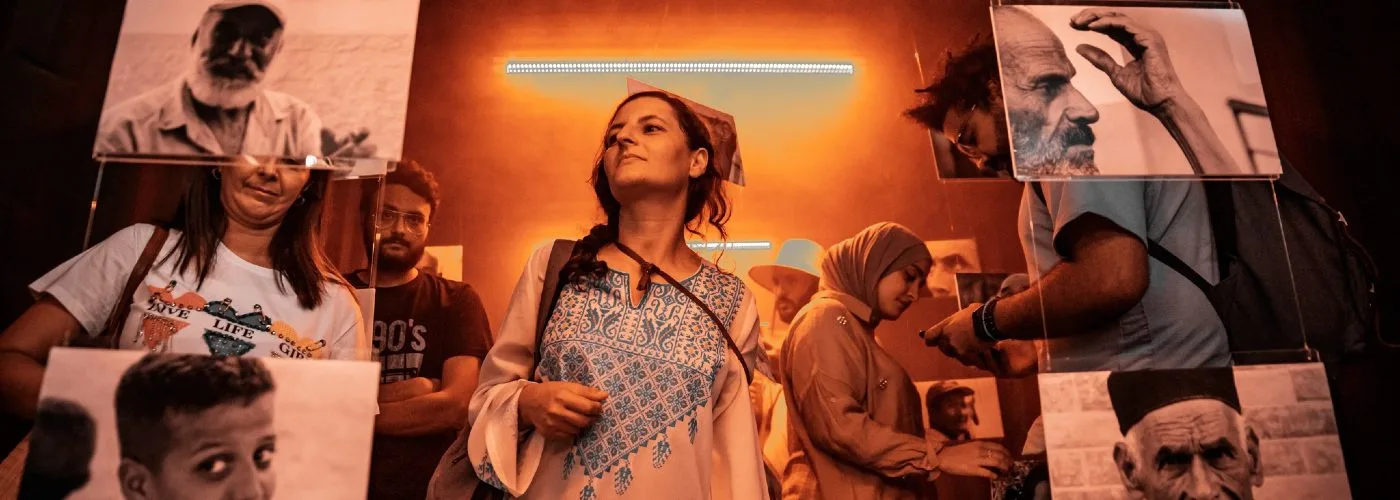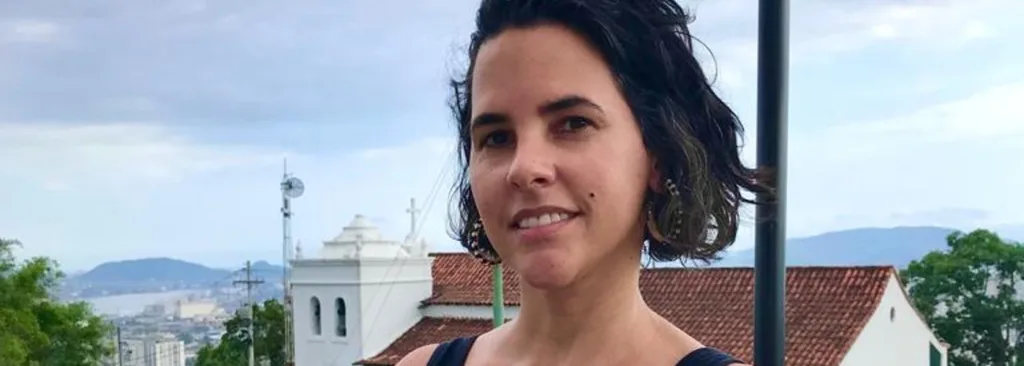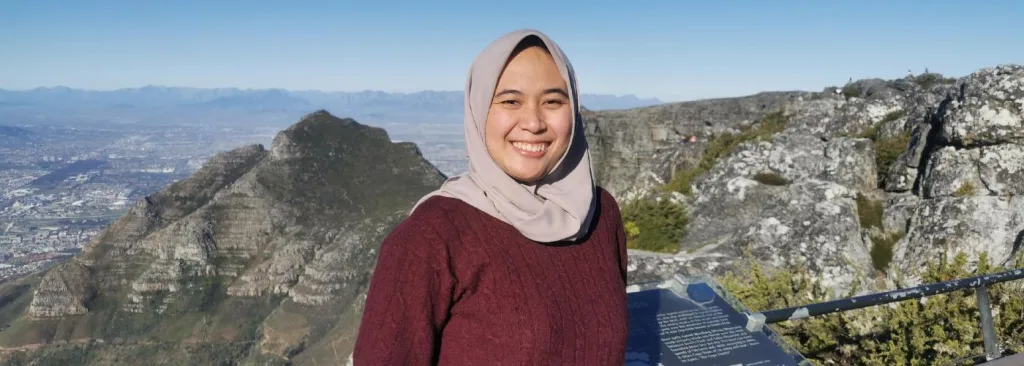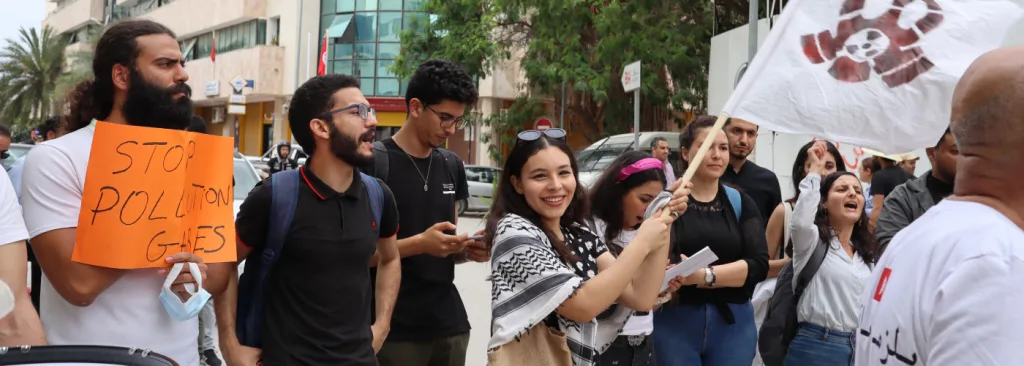Essia Guezzi is a program manager at Hivos in Tunisia. She runs our Voices for Just Climate Action (VCA) program, working with local communities to make their voices heard in national and global discussions on the climate crisis. We talked to her about climate change in Tunisia, the ways it affects its people, and the work Hivos is doing through VCA to fight it.
How does climate change affect Tunisia?
“Climate change is one of the big challenges facing the country. It comes on top of the country’s existing economic, political and social crises. Tunisia’s environment has already long suffered from air pollution, waste mismanagement, and other sources of pollution. Climate change is only increasing the fragility of its ecosystems. During the last ten years, the country has suffered extreme weather events like heat waves, flash floods, months of drought, and desertification. This impacts the society and economy at large. Just think of what it does to agriculture in an already dry climate.”
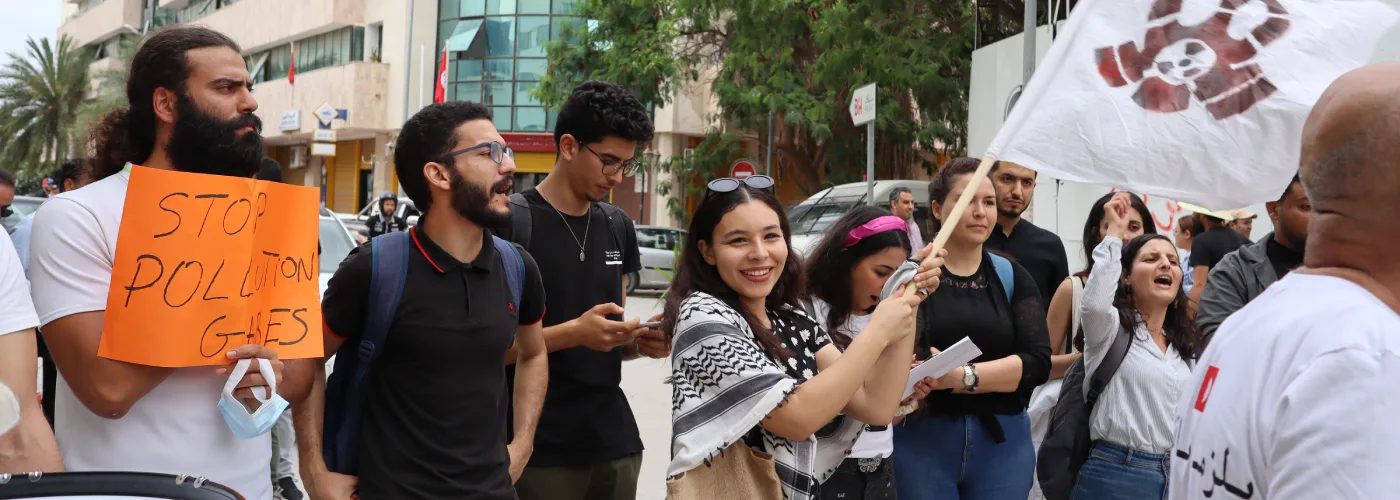
What does just climate action mean to you?
“Just climate action recognizes that the effects of climate change make social, political and economic problems worse. The same goes for just environmental action. Take the case of Gabes, a city located in the west of Tunisia with lots of chemical industries. The factories there produce fertilizer but also pollute the ground, air, and the sea. Water, already in short supply due to drought, is overexploited by the factories for their production processes.”
“This is not picked up on by the international agencies and organizations that are invited to Tunisia by our government to draw up climate strategies. Local communities are not consulted, and the recommendations of civil society are ignored. So when foreign companies come to invest, they don’t take into account the views and needs of Tunisians. Then we risk repeating models of investment that exploited natural resources without benefiting local people or respecting their interests.”
“Recently I visited a community that had land taken from them by the government for a wind farm project. Not only did they receive very little compensation, but the people don’t even have proper access to energy themselves. This may be an energy transition, but it’s the opposite of just climate action.”
What has Voices for Just Climate Action achieved in Tunisia?
“VCA works on various different themes in Tunisia. We support our partner New Generation for Environment and Development in their campaign for more transparency from the government on yet another wind farm project that hasn’t properly compensated local people for their land.”
“We’re also collaborating with the Working Group for Energy Democracy to build the capacity of local organizations to deal with similar government climate projects. Ideally, people will be able to look critically at government proposals and ask: How many jobs will this project create? Will it over-exploit our water resources? Will people be properly compensated for their land?”
“Other partners we work with are Collectif Creatif and Boubli, with whom we (amongst others) connect artists and social media journalists with experts on climate. Creatives can help explain a concept like ‘water scarcity’ to the general public in a different, more engaging way.”
“And we’re supporting our partner Tunisian Youth Impact in establishing local climate action plans. Ten municipalities from the most vulnerable regions in the country have received assistance so far.”
What motivates you personally to do this work?
“I was born in the northern coastal town of Raf Raf in the Bizerte Governorate. My father was a farmer and fisherman, and this gave me a strong bond with land and nature. When I was little I was always worried about if it would rain or not. And I still follow the weather forecasts closely, even though I have nothing to do anymore with fishing and farming.”
“Before Hivos, I worked at a conservation organization that focused on protecting biodiversity and ecosystems. However, I realized that people are a part of ecosystems, too. We should care for them as well: everyone should be able to claim their rights. In the VCA program I can work for both nature conservation and human rights.”
“Besides, I’m proud of my country. I don’t want someone from outside coming and telling us what’s good for us. That way, the energy transition just risks becoming another form of colonialism. We Tunisians know very well what our interests and needs are. And I want to make a contribution to what matters most to my people and the environment.”
About Voices for Just Climate Action
The Voices for Just Climate Action (VCA) program, initiated in January 2021, is a lobby and advocacy program implemented by an alliance led by four strong Southern CSOs: Akina Mama wa Afrika, Fundación Avina, Slum Dwellers International and SouthSouthNorth, and two Global CSOs: Hivos and WWF-Netherlands, under the Dutch Ministry of Foreign Affairs’ five-year strategic partnership: “Power of Voices.” The program aims to ensure that by 2025, local civil society and underrepresented groups will have taken on central roles as creators, facilitators, and advocates of innovative and inclusive climate solutions.

